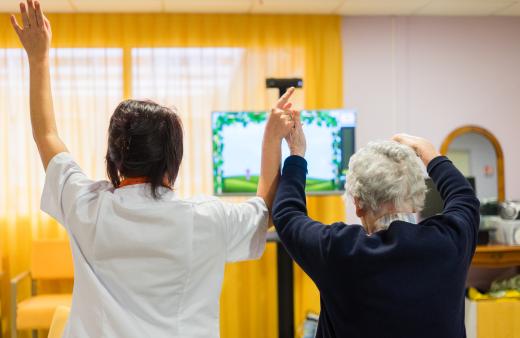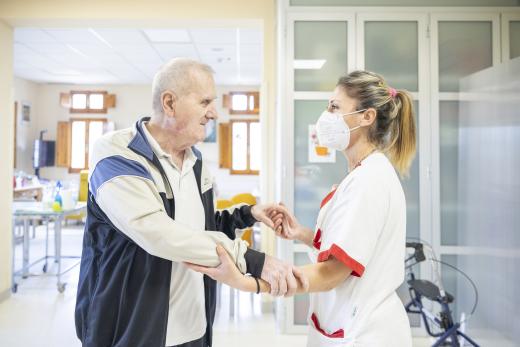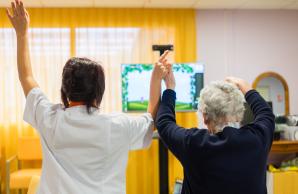World Alzheimer’s Day: Prevention, research, quality of life – perspectives on Alzheimer’s with Professor Bruno Dubois and Professor Antoine Piau

Population ageing means Alzheimer’s disease and related conditions are at the heart of major public health issues. As Professor Bruno Dubois, co-founder of the Alzheimer Research Foundation, reminds us, “it currently affects a million people in France, but that figure rises to nearly three million if we include relatives. It’s a tsunami that society has to be prepared for.”
Faced with this challenge, Clariane works alongside patients, residents and their families on a daily basis.
For Professor Antoine Piau, Clariane Group Chief Medical, Ethics and Health Innovation Officer, “our mission is to offer each person – regardless of their country, living arrangements and medical history – a quality of care that ensures they can retain as much autonomy as possible and, above all, achieve a good quality of life.”
Redefining care
Today, on World Alzheimer’s Day, we reiterate our core conviction: every person affected by cognitive disorders deserves dignified and personalised support. Caring doesn’t just mean treating an illness. Above all, it means taking care of a person, a unique individual with their own story.
In practical terms, this translates into:
- preventative measures to delay dependence and offer support tailored to each person. This vision forms part of Positive Care, an integral approach to care rooted in evidence-based medicine;
- appropriate and safe living environments designed to reduce risk, maintain independence and respect residents’ individual preferences;
- non-pharmaceutical interventions such as cognitive stimulation, music therapy and adapted physical activity to promote well-being and the maintenance of social ties.

Prevention and research: tools for the future
Scientific advances will open up new perspectives to help tackle Alzheimer’s disease. As Professor Bruno Dubois notes, “it will soon be possible to confirm a diagnosis using a simple blood test that detects biomarkers”. In highly regulated protocols and in expert centers, these markers in the blood will reveal early brain changes, including the accumulation of amyloid plaques, a key marker of Alzheimer’s disease.
The blood tests, which are simple, quick and less invasive than traditional tests, will make it possible to detect the disease before symptoms appear. Early identification of Alzheimer’s disease will offer a chance to implement personalised treatments and prevention strategies, providing new opportunities to slow its progression and improve patients’ quality of life.
Combined with new drugs that target and eliminate brain damage, these tools will contribute to more effective prevention of the disease.
Clariane actively supports this process by contributing to fundamental research, in particular through the Young European Researcher Prize from the Alzheimer Research Foundation, which encourages scientific innovation and promotes the development of tangible solutions for patients.

Did you know?
- In the European Union, nearly 8 million people were living with a neurodegenerative disease (Alzheimer’s disease or related disorders) in 2021 (Health at a Glance: Europe 2024, OECD/Alzheimer Europe).
- The 2024 WHO Europe report highlights that Alzheimer’s disease and related disorders are now the leading cause of disability and the 4th leading cause of death in Europe.


